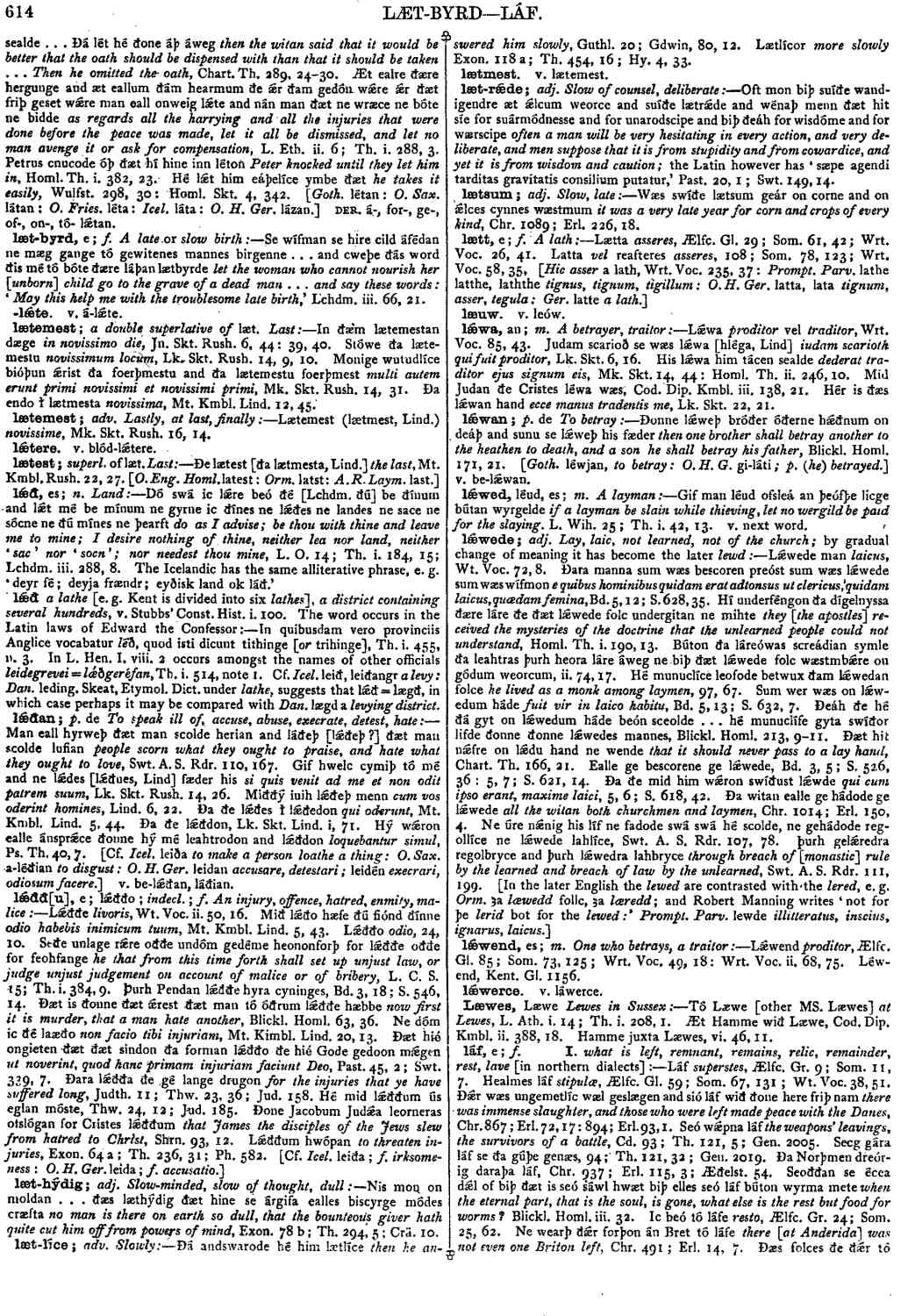lǽwede
- adjective
-
Lǽwede man
laicus,
- Wt. Voc. 72, 8 .
-
Ðara manna sum wæs bescoren preóst sum wæs lǽwede sum wæs wífmon
e quibus hominibus quidam erat adtonsus ut clericus,quidam laicus, quædam femina,
- Bd. 5, 12 ;
- S. 628, 35 .
-
Hí underféngon ða dígelnyssa ðære láre ðe ðæt lǽwede folc undergitan ne mihte
they [the apostles] received the mysteries of the doctrine that the unlearned people could not understand,
- Homl. Th. i. 190, 13 .
-
Búton ða láreówas screádian symle ða leahtras þurh heora láre áweg ne biþ ðæt lǽwede folc wæstmbǽre on gódum weorcum,
- ii. 74, 17.
-
Hé munuclíce leofode betwux ðam lǽwedan folce
he lived as a monk among laymen,
- 97, 67 .
-
Sum wer wæs on lǽwedum háde
fuit vir in laico habitu,
- Bd. 5, 13 ;
- S. 632, 7 .
-
Ðeáh ðe hé ðá gyt on lǽwedum háde beán sceolde ... hé munuclífe gyta swíðor lifde ðonne ðonne lǽwedes mannes,
- Blickl. Homl. 213, 9-11 .
-
Ðæt hit nǽfre on lǽdu hand ne wende
that it should never pass to a lay hand,
- Chart. Th. 166, 21.
-
Ealle ge bescorene ge lǽwede,
- Bd. 3, 5 ;
- S. 526, 36 :
- 5, 7 ;
- S. 621, 14 .
-
Ða ðe mid him wǽron swíðust lǽwde
qui cum ipso erant, maxime laici,
- 5, 6 ;
- S. 618, 42 .
-
Ða witan ealle ge hádode ge lǽwede
all the witan both churchmen and laymen,
- Chr. 1014 ;
- Erl. 150, 4 .
-
Ne úre nǽnig his líf ne fadode swá swá hé scolde, ne gehádode regollíce ne lǽwede lahlíce,
- Swt. A. S. Rdr. 107, 78 .
-
þurh gelǽredra regolbryce and þurh lǽwedra lahbryce
through breach of [monastic] rule by the learned and breach of law by the unlearned,
- Swt. A. S. Rdr. 111, 199 .
Bosworth, Joseph. “lǽwede.” In An Anglo-Saxon Dictionary Online, edited by Thomas Northcote Toller, Christ Sean, and Ondřej Tichy. Prague: Faculty of Arts, Charles University, 2014. https://bosworthtoller.com/21030.
Checked: 1